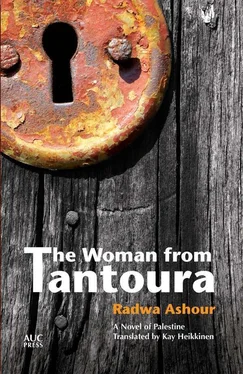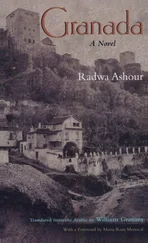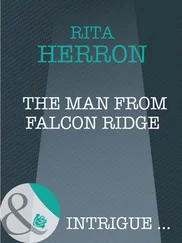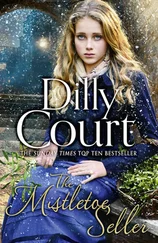In al-Maskubiya, news of the prisoners reached us. They announced over a loudspeaker that letters had arrived from the Red Cross. My mother stood waiting in the line; they did not call her name. The women and children dispersed after everyone had received the letter that had come for him. My mother spoke to the official, and he told her that he had passed out all the letters he had.
We spent six months in Hebron, and then the people of our town started to sort themselves out: there were some who wanted to join relatives they had in Tulkarm or Nablus or Jenin, and some who slipped back into Galilee, and some who went to Syria. My mother said we would go to Sidon, to my uncle. “How will you go to Sidon?” asked Wisal’s mother. My mother brought out seven gold guineas and said she had succeeded in hiding them during the search. Wisal’s mother said that she had relatives in Jenin, and my mother gave her three of the seven guineas. We bade farewell to the townspeople and to Wisal, her mother, and Abed. We crossed the Jordan River in the company of two families from the town who were going to Irbid; we were a little caravan of sixteen people, most of them children, as well as an old man who knew the road. The weather was very cold, and it was desert road with bare, rocky mountains; I couldn’t see the sea, or smell it. In Irbid we stayed as guests with a family related by blood to the two families we had accompanied; we stayed with them for a week, and then my mother decided to continue our trip to Sidon. The head of the family who hosted us said, “The shared taxi will take you to Daraa, in Syria. You will get off there and look for the bus that goes to Damascus. In Damascus you will ask for taxis heading for Sidon; either you’ll go straight to Sidon or else you’ll take any taxi heading for Rashaya or Marjayoun or Nabatiyeh. When you get to any of them you will be a half hour’s distance from Sidon.” He repeated the names to her again and emphasized that she should not forget them. Then he said, “God be with you.” He wanted to give her money but she said, “God blesses and provides, brother. I have money, thank God.”
The next day in the morning the man took us to the taxi stop and we rode with others going to Daraa. He commended us to the driver and to the other passengers. We crossed the border, and after a few hours we and other passengers were settled in our seats in another taxi that was heading from Daraa to Damascus. We arrived at night, and spent the night in a mosque. “The idea was,” my mother would say to her sister, “that we would set out early in the morning and reach Sidon on the same day. We slept peacefully, and in the morning I found Ruqayya’s face red. I put my hand on her forehead and it was like fire. I said, ‘Ruqayya, pull yourself together, it’s nothing, today we’ll arrive at your uncle’s.’ But the girl didn’t hear me or see me, stretched out on the carpet of the mosque as if she were dead but breathing.” I don’t remember any of the details of my illness, but my mother says that I had the fever for two weeks, and that she was crying day and night because she was sure I would die. “And what would I say to her father and brothers when they come back safely, she died on me on the road? When she had had the fever for two days and I didn’t have any sage or mint, and I couldn’t boil a chicken for her so she could drink the broth, I asked the good people about a doctor. I went to him and he came with me to the mosque. He asked for a lira — yes by God, a Palestinian guinea in gold! I gave it to him before he would agree to go to the mosque with me. He examined her and wrote a prescription for me and I bought it. By the time Ruqayya got well, out of the four liras I only had ten piasters left.” My aunt marveled, “Ten piasters? Didn’t you say that you had four liras in gold?” My mother counted the expenditures on her fingers: “Didn’t we cross the Jordan River, and pay for it? Didn’t we take the taxis? And food and drink while we were in the mosque, and the doctor, may God not forgive him. And I bought two wool sweaters, one for me and the other for Ruqayya, when we were in Irbid, because the cold cut to the bone.” She returned to counting on her fingers. “And I bought the medicine. The sheikh of the mosque, God protect him and bless his children, brought me bread and something to eat with it and sage from his house, and a woolen blanket for us to wrap up in.” My aunt returned to the question of the ten piasters: “So how did you get to Sidon?” My mother waved her hand and sighed, saying, “There are many good people.” She did not tell her sister, from whom she hid nothing, that she had stood at the door of the mosque and told her story to anyone she thought might help her, among those who passed.
We arrived in Sidon at the beginning of February of the following year. When we met my aunt and uncle I was wearing the three dresses, one on top of the other, and on top of them the wool sweater that my mother had bought for me in Irbid. The first words I spoke since we had left home were what I said in a whisper to my uncle: “My father and my two brothers were killed. I saw them with my own eyes on the pile. They were with a hundred or maybe two hundred people who were killed, but they were on the edge of the pile, I saw them. My mother will tell you that Sadiq and Hasan went to Egypt and that my father is a prisoner. I saw them covered with blood, on the pile.”
When Ezz said to me, “Ruqayya, I want to talk to you,” I thought the way he said it was strange. I nearly made fun of him, I nearly said, “Do you want permission to talk to me, or an appointment?” But I didn’t. I waited for him to speak, and he said, “I’ll take you to the sea.”
I walked beside him. When he left the village with his father and mother eight months earlier I was taller than he was, but he had become taller than I was. I remarked on it, and he laughed and said, “I have springs in my knees. Every couple of days I hear them creak, and then I find myself a few inches taller.” The smell of the sea was clear in the city. Even though it was mixed with other smells, in the old city it became more dominant as we got closer to the shore, until the only smell was the sea. We took off our sandals and plunged into the sand. Then we sat down next to each other, cross-legged, and Ezz said, “The sea in Sidon is like the sea at home.” I looked up and said, “The sea in the village is better. Here there aren’t any islands or sugar springs or grottoes. The smell there is different, and the sounds too.” He remained silent and I did also, feeling the sea air spread over my hair and face and clothes, staring at the movement of the waves rising and breaking and rising again. I followed the flight of the sea foam. Strange how two images can come together and be superimposed, one over the other! You’re in Sidon, girl, and the other sea is there, bound by the dark, rocky islands, the scent of the lilies and the houses that seem like shells or moss, which sprang from the sea originally and then stayed close to it when the waves washed them ashore. I see them as two seas, as if one eye saw one and the other looked at a different sea.
Ezz said, “Ruqayya, I want to talk to you.”
“What’s the matter, Ezz? Just say it, what’s holding you back?”
“I want to ask you … are you sure that you saw my uncle Abu Sadiq and Sadiq and Hasan with the corpses on the pile?”
“I saw them.”
“Why does my aunt say ….”
I interrupted him, “I pointed with my hands. I pulled on her hand and pointed. They were in front of her eyes. She didn’t see them, as if she lost her sight for a moment and then got it back. I don’t know how or why.”
“Did you see them alone or did you see others too?”
Читать дальше












